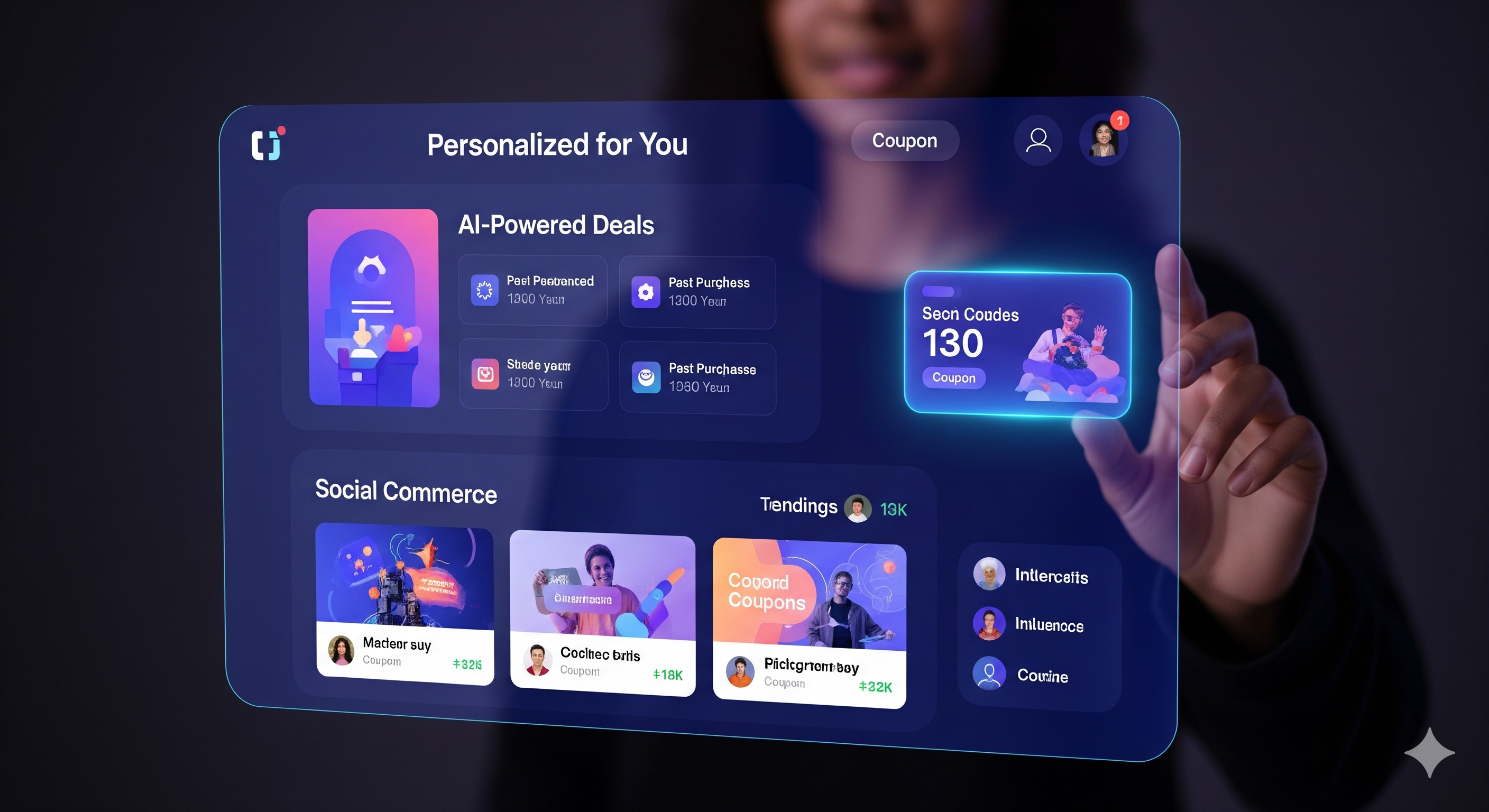Remember when a coupon was just a piece of paper you clipped out of a newspaper? That’s a distant memory now. The world of coupons and deals has gone entirely digital, and it’s transforming at a pace that can be hard to keep up with.
If you run a coupon or affiliate marketing website, staying ahead of the curve isn’t just a good idea; it’s essential for survival. The digital coupons market is projected to reach over $10 billion in 2025 and continue growing to nearly $43 billion by 2033 (BloggersPassion). This explosive growth is powered by evolving consumer behaviors and new technologies.
So, what does the future hold for coupon websites? We’re diving into the key trends that will define the industry in 2025 and beyond. From the rise of AI to the power of social commerce, here’s what you need to know to build a successful, future-proof platform.
1. Age of Hyper-Personalization with AI
General, one-size-fits-all coupon codes are on their way out. The next generation of coupon websites will be defined by an incredible level of personalization, all powered by artificial intelligence.
Think about your own shopping habits. You’re more likely to use a deal that’s tailored to your interests and past purchases, right? A whopping 93% of US shoppers say that “discounts and offers” are important factors in their shopping decisions (Voucherify), and a significant portion of those want offers that are personalized to them.
How AI is changing the game:
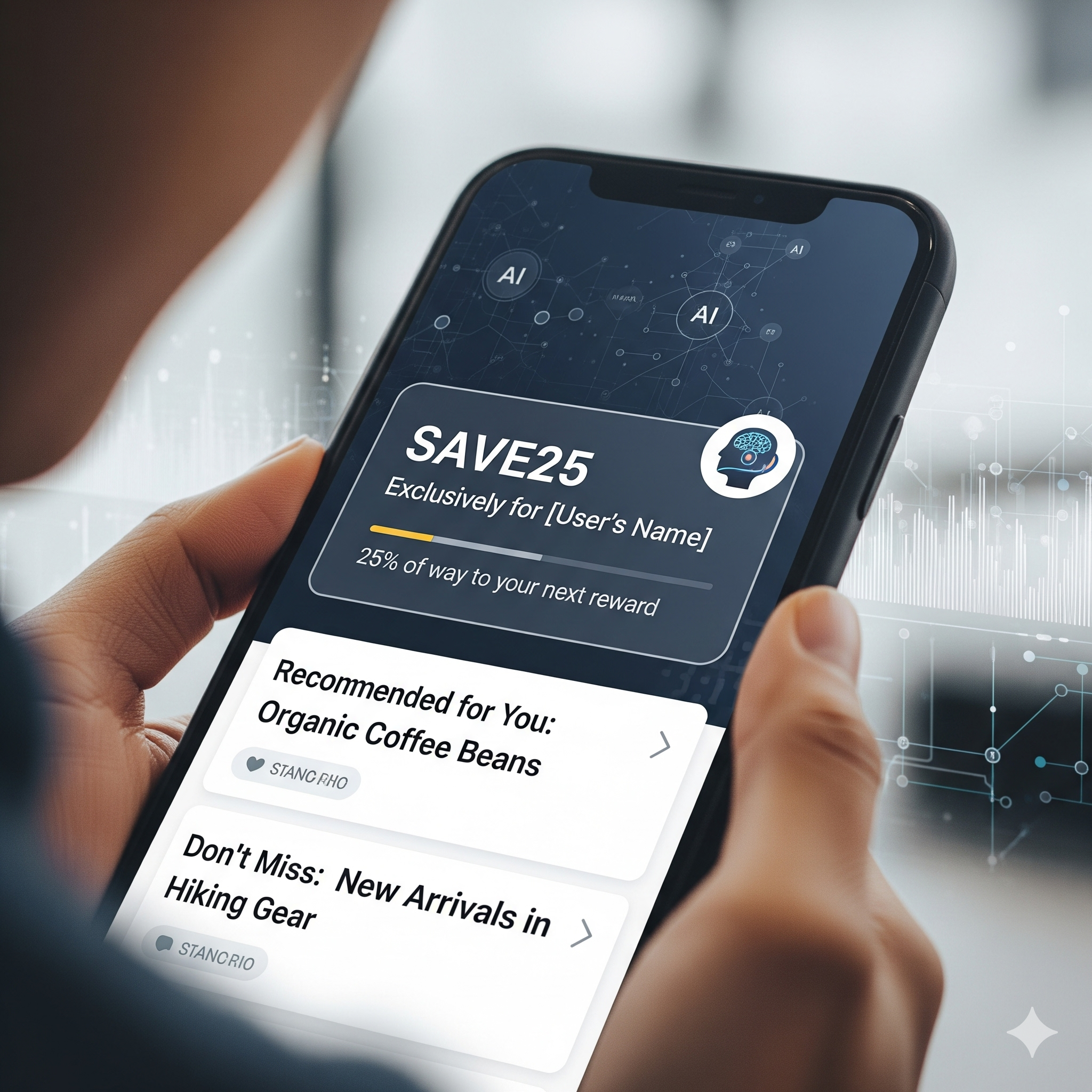
- Predictive Deals: AI algorithms can analyze a user’s browsing history, purchase patterns, and even social media activity to predict what they are likely to buy next. This allows a website to recommend not just popular deals, but deals that are highly relevant to that specific user. For example, if a user frequently searches for running shoes, the AI can automatically push relevant Nike or Adidas deals to them.
- Dynamic Pricing and Real-Time Offers: The future isn’t just about static coupon codes. AI can enable dynamic pricing and real-time promotions that adjust based on factors like current inventory, user behavior, and even external events. Imagine a flash sale triggered for users in a specific region during a holiday weekend.
- Chatbots and Conversational Commerce: AI-powered chatbots are no longer just for customer support. They can act as personal shopping assistants, guiding users to the best deals based on their questions. They can even provide personalized coupon codes directly within the chat, creating a seamless and engaging user experience.
Actionable Insight: To get started, you don’t need to build a complex AI from scratch. Look for platforms and APIs that offer personalized recommendation engines. Start by categorizing your deals and using basic user data (like clicks and views) to show more relevant content. The goal is to move from being a simple deals aggregator to a trusted, personalized shopping guide.
2. Rise of Social Commerce and Influencer Deals
Social media is no longer just a place for sharing photos; it’s a powerful retail destination. According to a Euromonitor report, consumers are increasingly viewing social platforms as places to shop. This creates a massive opportunity for the digital coupon industry.
In 2025 and beyond, coupon websites will need to deeply integrate with social media to stay relevant.
- In-Platform Deals: The path to purchase is becoming shorter. Instead of a user having to click a link, leave the social platform, and visit your site, they can now discover products and apply a coupon code without ever leaving their social feed. This is where dedicated social media campaigns and influencer partnerships become crucial.
- Influencer-Specific Codes: People trust recommendations from their favorite content creators. Collaborating with influencers to offer unique, dedicated coupon codes (e.g., “JANE20” for 20% off) drives both traffic and conversions. These codes are not just about a discount; they build a sense of community and exclusivity.
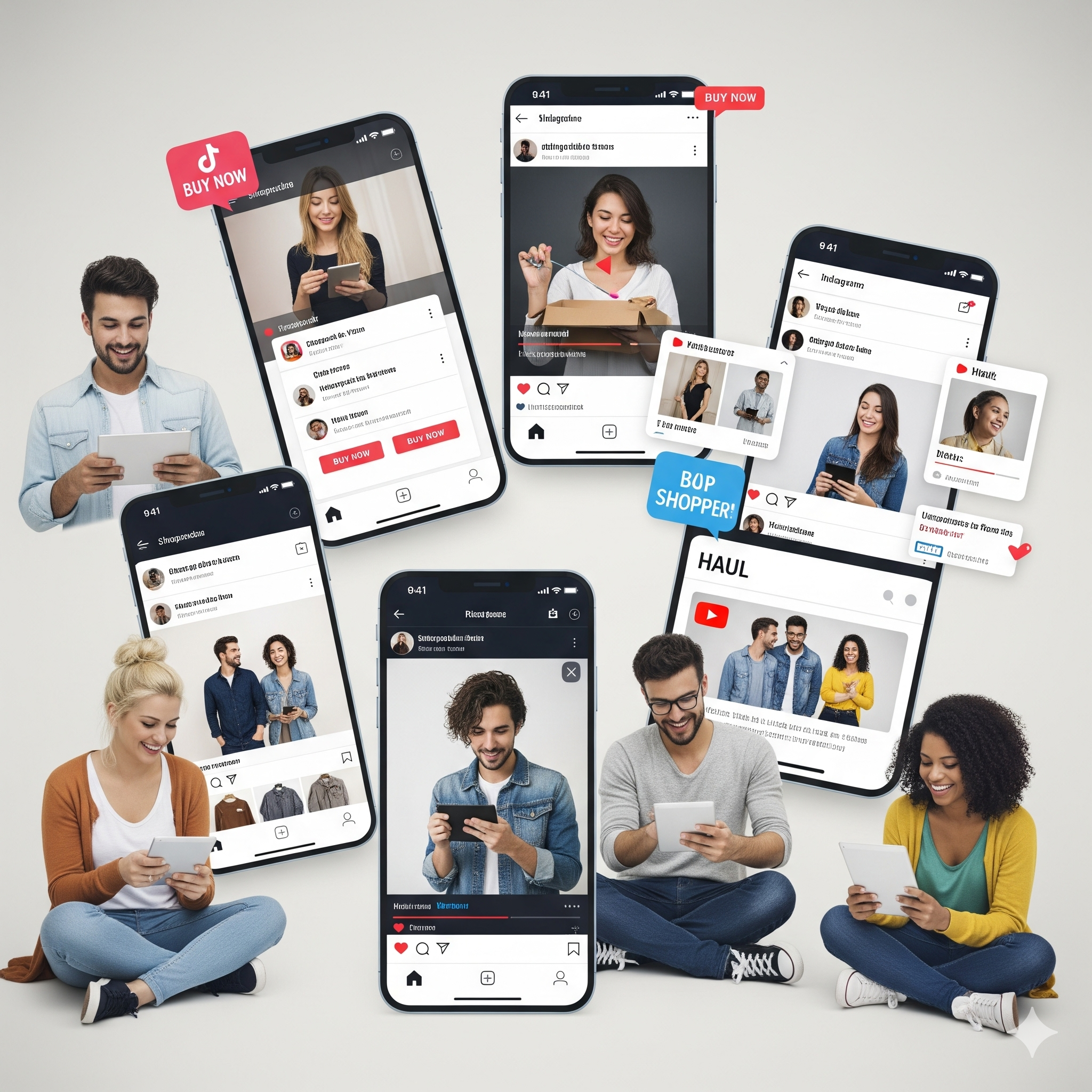
- The Power of Short-Form Video: Platforms like TikTok, Instagram Reels, and YouTube Shorts are perfect for showcasing products and deals in a fun, engaging way. A quick video demonstrating a product and then flashing a QR code or a coupon code can have a massive impact.
Actionable Insight: Start a social media strategy focused on short-form video. Create quick, engaging content that highlights a few top deals, and use a dedicated landing page for your social traffic. Partner with micro-influencers in a niche you cover (e.g., fashion, electronics, or home goods) to give your deals a personal touch.
3. Gamification and Loyalty Programs
Why do people love finding a great deal? It’s not just about saving money it’s about the feeling of winning. The best coupon websites of the future will tap into this psychological driver by adding elements of gamification.
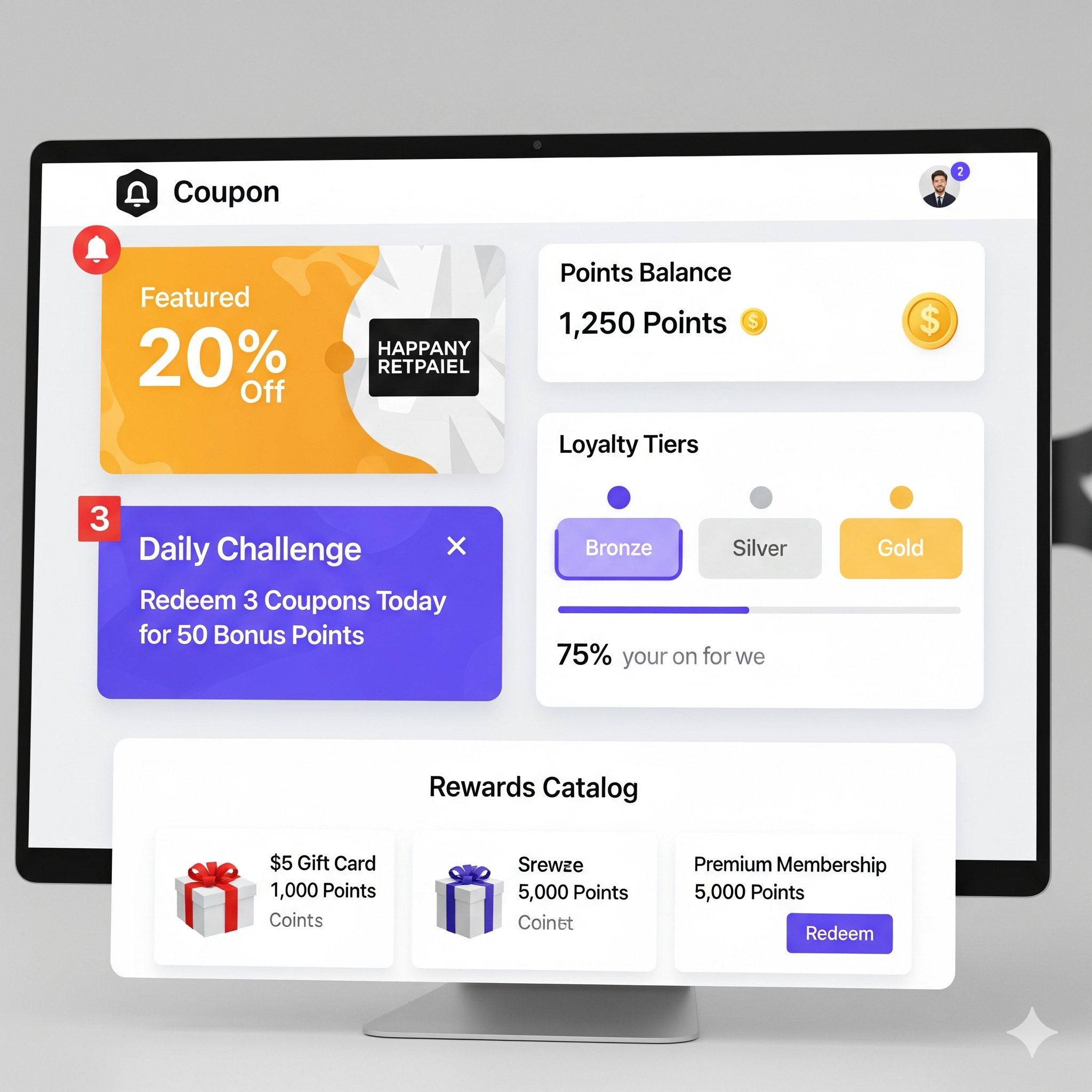
- The “Hunt” for Deals: Gamified experiences can turn the act of finding a deal into an engaging activity. This could involve “treasure hunts” for hidden coupon codes or a “daily spin” for an extra discount. These features increase user engagement and time on site.
- Points, Tiers, and Rewards: Building a loyalty program is a powerful way to retain users and encourage repeat visits. This can work by giving users points for every coupon they redeem or for every review they leave. These points can then be redeemed for exclusive deals or special rewards. This transforms a one-time user into a loyal community member.
- Exclusive Community Access: The most engaged users can be rewarded with access to a special “VIP” section of the site, where they get early access to high-value deals or exclusive promotions not available to the general public
Actionable Insight: Consider integrating a simple loyalty program. Platforms like Open Loyalty offer tools to create coupon-based reward catalogs and track user engagement. You can start with something as simple as a “Streak Bonus,” rewarding users who visit your site every day with a small point bonus.
4. Integration of New Technologies
While AI and social are the big players, several other emerging technologies are poised to reshape the coupon industry.
- Mobile-First Everything: This isn’t a new trend, but its importance is growing exponentially. Over 93% of digital coupon users in the US are expected to redeem their vouchers via smartphone in 2025 (BloggersPassion). Your website must be flawlessly optimized for mobile. This means fast load times, easy-to-use navigation, and one-tap coupon redemption.
- QR Codes and In-Store Integration: The pandemic accelerated the adoption of QR codes, and they are here to stay. Coupon websites can provide QR codes that link directly to a deal, allowing users to redeem offers seamlessly in physical stores. This bridges the gap between online and offline shopping.
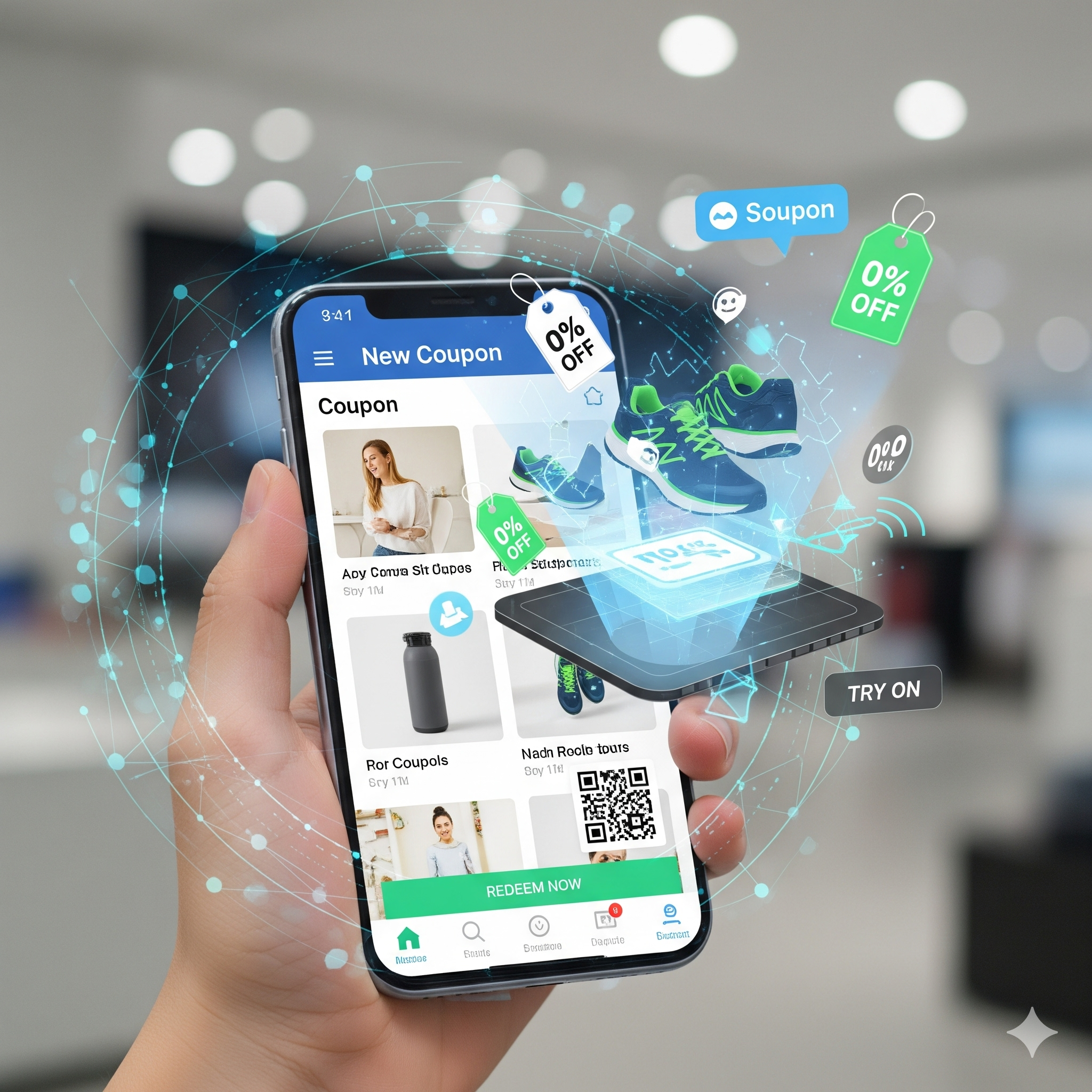
- Augmented Reality (AR): While still a niche, AR has the potential to transform how users interact with products. Imagine a user pointing their phone at a piece of furniture and seeing a digital overlay with a special discount code. Brands like IKEA and Sephora are already experimenting with AR to enhance the shopping experience and drive conversions.
Actionable Insight: Ensure your mobile site is a top priority. Test it thoroughly for speed and usability. Beyond that, consider adding QR codes to your promotional materials (if you use them) and even your social media posts to create a frictionless user journey.
FAQs About the Future of Coupon Websites
Q1: Will paper coupons completely disappear?
While the digital coupon market is exploding, paper coupons won’t disappear entirely, especially for certain demographics. However, their usage is declining. Digital coupons are becoming the dominant force due to their convenience, trackability, and ability to be personalized. The redemption rate for mobile coupons is already 10 times higher than that of their paper counterparts (Snipp).
Q2: How can a new coupon website compete with big players like RetailMeNot?
The key is to focus on a niche. Instead of trying to be a general aggregator, specialize in a specific category (e.g., sustainable fashion, high-end electronics, or health and wellness). By becoming the authority in a niche, you can build a highly engaged and loyal audience that trusts your recommendations. This audience is often more valuable than a broad, general one.
Q3: Is affiliate marketing still a viable business model for coupon sites?
Yes, absolutely. Affiliate marketing remains the backbone of the coupon industry. The future trends we’ve discussed AI, personalization, and social commerce are not a threat to affiliate marketing; they are tools to make it more efficient and profitable. These technologies help you drive higher-quality traffic, increase conversion rates, and build stronger, more sustainable relationships with both merchants and users.
The Future is Now. Are You Ready?
The coupon industry is in a state of exciting transformation. The winners of tomorrow won’t be the ones with the most deals, but the ones with the smartest, most personalized, and most engaging platforms.
This is where you have an incredible advantage. By understanding and implementing these trends, from AI-driven personalization to the power of social commerce, you can create a platform that stands out in a crowded market.
Ready to launch your future-proof coupon website? ClipMyDeals provides the theme, browser extension, and Android and IOS apps you need to get started today, with a platform designed to support a seamless, mobile-first, and data-driven experience. Don’t just watch the future unfold; build it.
